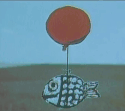|
Wikipedia posted: posted:In March 1797 Cockchafer captured Two Friends.[7] Maybe the real Cockchafers were the friends we met along the way?
|
|
|
|

|
| # ? Jun 3, 2024 16:27 |
|
The Royal Navy had a whole class of patrol boats called Gay-class so you had a bunch of ships going around called like HMS Gay Viking, HMS Gay Archer, HMS Gay Corsair, HMS Gay Centurion, etc.
|
|
|
|
Best one is always going to be HMS Zubian if only for how she got her name. You got some Zulu on my Nubian! You got some Nubian on my Zulu! 
|
|
|
|
Jamwad Hilder posted:The Royal Navy had a whole class of patrol boats called Gay-class so you had a bunch of ships going around called like HMS Gay Viking, HMS Gay Archer, HMS Gay Corsair, HMS Gay Centurion, etc. So what youíre telling us is that HMS Gay Cockchafer was a possibility and we were cruelly denied it.
|
|
|
|
Xiahou Dun posted:So what youíre telling us is that HMS Gay Cockchafer was a possibility and we were cruelly denied it. lmao
|
|
|
|
ContinuityNewTimes posted:The Red Army battles its way through Europe at immense cost, only to have a breakdown when they get to Paris and realise it's a dirty shithole Frederick Forsyth's Paris Syndrome
|
|
|
|
The Cossacks washed their clothes outside the city of Paris for a reason.
|
|
|
|
|
Jamwad Hilder posted:The Royal Navy had a whole class of patrol boats called Gay-class so you had a bunch of ships going around called like HMS Gay Viking, HMS Gay Archer, HMS Gay Corsair, HMS Gay Centurion, etc.  half of your short list weren't Gay class, or even Royal Navy! (They were in merchant marine.) To quote my previous page self half of your short list weren't Gay class, or even Royal Navy! (They were in merchant marine.) To quote my previous page self Nenonen posted:and let's never pass an opportunity to mention the post-WW2 Gay class fast patrol boats, of which WW2 motor gun boats Gay Viking and Gay Corsair were not part of.
|
|
|
|
I have a question of logistics and planning in regards to taking prisoners in industrial war. As a specific example, during Operation Michael in WW1 the German army took 75,000 British soldiers prisoner. How the absolute gently caress do you house, feed, or even pretend to care for a medium sized city worth of soldiers? Do you plan for the prisoners ahead of time by somehow building out the infrastructure and supplies ahead of time? I guess even more specifically I mean in the immediate, short, and medium term. I understand the long term goal was usually forced labor or prisoner exchanges. But like, when you're a logistics officer at the rear of the line, and literal thousands upon thousands of prisoners start showing up....what do they do
|
|
|
|
Presumably the Two Friends was a Gay class before that nomenclature was approved
|
|
|
|
US Foreign Policy posted:I have a question of logistics and planning in regards to taking prisoners in industrial war. As a specific example, during Operation Michael in WW1 the German army took 75,000 British soldiers prisoner. How the absolute gently caress do you house, feed, or even pretend to care for a medium sized city worth of soldiers? Do you plan for the prisoners ahead of time by somehow building out the infrastructure and supplies ahead of time? Short answer is via the same mechanisms they you feed/shelter/care for/ etc the even more men you have in your army. The Germans used 72 divisions in that offensive, and a German division of that era had a paper strength of 18000 men. Do the math yourself, but the tldr is that they captured about four divisions worth of men and were already caring for 72 in that sector. In the German case specifically each branch of the armed forces had prisoner camps set up for housing their opposite number: army held enemy army prisoners, navy held navy, etc. So yes, you do have some additional planning in place once they get behind the immediate combat area. Long answer is that yeah, sometimes care suffers. Sometimes itís due to neglect and lack of supplies, sometimes itís malicious. The Germans killed about three million of the six million Soviet POWs they took in WW2, mostly through lack of food and shelter. That was one part ideology (Russians being subhuman and all from the Nazi point of view) and one part being totally unprepared for the massive prisoner bags they took in 1941, which were way beyond anyoneís predictions. The other wrinkle is that sometimes you arenít in a good position to take prisoners so you just . . . donít. Think airborn forces operating behind the front lines a la DDay. In that case people surrendering are just killed. Edit: also LMAO at that post/user name combo, goddamn Cyrano4747 fucked around with this message at 18:04 on Dec 13, 2023 |
|
|
US Foreign Policy posted:I have a question of logistics and planning in regards to taking prisoners in industrial war. As a specific example, during Operation Michael in WW1 the German army took 75,000 British soldiers prisoner. How the absolute gently caress do you house, feed, or even pretend to care for a medium sized city worth of soldiers? Do you plan for the prisoners ahead of time by somehow building out the infrastructure and supplies ahead of time?
|
|
|
|
|
Nessus posted:I imagine you make some allowance for prisoners. One advantage is that if your side is taking 75,000 prisoners you are likely winning in that sector And you are also losing men of your own while attacking, who don't need to be fed any longer. Then use the same ways that you take your own wounded to the rear until they are no longer the front division's responsibility.
|
|
|
|
Nessus posted:I imagine you make some allowance for prisoners. One advantage is that if your side is taking 75,000 prisoners you are likely winning in that sector Thank you everyone for answering so far. To expand on this, does that mean at an operational level you plan to take prisoners? Is there a predetermined amount you can reasonably capture? I guess I also wonder how captures on that large of a scale would practically play out. I hate to use movies as some kind of resource here but often they portray captures as spontaneous, usually small level actions sometimes carried out because the attacker didn't feel like they should kill a surrendering unit. That makes it feel like sometimes battlefield prisoners are entirely spontaneous. I guess thats where I breakdown on the mental picture from 'You're leading a dozen guys back to the rear' to 'The entire city of Hot Springs, Arkansas in the form of angry men just shwed up and need somewhere to go" Is it communicated to units before the attack? Was it more common in say a WW1 setting that you would surround a large enemy formation and expect them to surrender? I have to imagine this was also highly theater-specific, and surrendering masses of say Japanese forces in WW2 might be handled differently than German or British in WW1
|
|
|
|
US Foreign Policy posted:Thank you everyone for answering so far. To expand on this, does that mean at an operational level you plan to take prisoners? Is there a predetermined amount you can reasonably capture? No, just like there is no predetermined amount of your troops that need to be carried from the battlefield on stretchers. You just have to be prepared for the possibility, somehow. A lot of the prisoners will also be in need of first aid or hospitalisation, btw. But you can also expect that in a large mass of prisoners there are also medics and other unwounded men who can help their compatriots. In the end, no matter how carefully a battle is planned, five minutes in it's all improvisational theatre.
|
|
|
|
You will also get help to feed POWs via the red cross. (Though this might contain the occasional escape tool, hohoho)
|
|
|
|
US Foreign Policy posted:Thank you everyone for answering so far. To expand on this, does that mean at an operational level you plan to take prisoners? Is there a predetermined amount you can reasonably capture? It's worth noting that it's more likely for a German soldier to be taken prisoner in WWII than be killed in combat. Even, it seems, on the Eastern front. (Though the gap is much narrower) It should be fairly expected that large numbers of prisoners will be taken in any offensive.
|
|
|
|
Usually the prisoners are significantly outnumbered by your own fighting forces, but also you usually want to ship them away from the front lines to pose a less of a threat and at that point they are probably easier to feed than your own troops at the front lines. Extreme example those German prisoners who were shipped to prisoner camps in continental US and ended up as farm workers somewhere in Oregon.Cyrano4747 posted:This more or less fits the family story of a guy I used to know. His dad was scooped up in Tunisia in WW2, ended up in a POW camp in Oregon, and basically got rented out to farmers. He was a farm kid from rural Germany so he took to the work and had a good rest of the war. Got shipped back to Germany in 46 or so, saw what a mess it was, and hosed off back to the US at the earliest opportunity. Ended up back in OR, showed up on one of the farmer's doorsteps and got taken on as a farmhand. Eventually met a local girl and started a family. Biffmotron posted:My favorite WW2 POW escapade is the Great Papago Escape. The wikipedia article is pretty good, but the short version is that Camp Papago Park is located in central Phoenix. Most of the German POWs there were of the opinion that a POW camp in Arizona in December 1944 was a pretty decent place to spend the rest of the war. What are you going to do: escape, walk to Mexico, somehow make your way back to Germany, and die in the ruins of Berlin? Saukkis fucked around with this message at 00:12 on Dec 14, 2023 |
|
|
|
It's also worth noting that, especially towards the end of WW2, you'd have German soldiers looking for Allies (preferably not Russian ones) to surrender to. That is, they're ostensibly still armed and free to maneuver, but they're not interested in fighting, because the war is so clearly lost. You might have a relatively large and well-equipped force surrendering to a small, substantially outnumbered scouting force.
|
|
|
|
Cyrano4747 posted:The other wrinkle is that sometimes you aren’t in a good position to take prisoners so you just . . . don’t. Think airborn forces operating behind the front lines a la DDay. In that case people surrendering are just killed. Oh, I didn't know that; allied paratroops killed surrendering german soldiers? Does that mean they didn't agree to a cease fire when in a battle and just kept up the fight, or are we talking seemingly agreed then lined them up against a wall? Did they violate the nominal rules of war at the time?
|
|
|
|
Allied troops did their share of killing prisoners and civilians. Sometimes they got prosecuted for it, and I'm sure there are plenty of times they got away with it too.
|
|
|
|
Saukkis posted:Usually the prisoners are significantly outnumbered by your own fighting forces, but also you usually want to ship them away from the front lines to pose a less of a threat and at that point they are probably easier to feed than your own troops at the front lines. Extreme example those German prisoners who were shipped to prisoner camps in continental US and ended up as farm workers somewhere in Oregon. My favorite "very far away from the front lines" POW story was told in the book No Picnic On Mt Kenya. Italians were captured by the British in Ethiopia at the beginning of the war and put in POW camps. Security at the camps was light since anybody who broke out stood out as a white guy in Africa and was easily recaptured, and everyone knew it was for the long term so it was super boring. Several Italian POWs were inspired by sight of the nearby Mt Kenya, fashioned their own climbing equipment and saved up food, broke out of the camp, climbed to a subsummit of the peak like 5000 meters up, and returned to camp and broke back in 18 days later. You can read more about it and see some old pictures here https://explorersweb.com/escape-from-camp-354-mount-kenya-1943/
|
|
|
|
TooMuchAbstraction posted:It's also worth noting that, especially towards the end of WW2, you'd have German soldiers looking for Allies (preferably not Russian ones) to surrender to. That is, they're ostensibly still armed and free to maneuver, but they're not interested in fighting, because the war is so clearly lost. You might have a relatively large and well-equipped force surrendering to a small, substantially outnumbered scouting force. Has this ever been used as a purposeful strategy? Ie, successfully convince the enemy that being a prisoner of your army is preferable to being a soldier in their own (and, hopefully, follow through on that promise)? Or do wars tend to be more cutthroat than that, generally Western front of wwii seems to be an example (whether intentional from the allied side or not I canít tell), but Iím wondering if itís been tried before or since
|
|
|
|
TooMuchAbstraction posted:It's also worth noting that, especially towards the end of WW2, you'd have German soldiers looking for Allies (preferably not Russian ones) to surrender to. That is, they're ostensibly still armed and free to maneuver, but they're not interested in fighting, because the war is so clearly lost. You might have a relatively large and well-equipped force surrendering to a small, substantially outnumbered scouting force. I only exist because my grandpa and his unitís remains decided to stagger into the first western allies they saw running from Ostpreussen, and it happened to be some brits who emailed him to Illinois. He was from Strasbourg too, and apocryphally he was offered to be sent back to France and was like ďno gently caressĒ They were moving armed, with a train of civilians, and eventually found some brits near Hamburg and managed a mass surrender. Much better than heading to Siberia, but joke is on him, the civilians got much better treatment. They did end up in the opposite Germany of their families in a sad amount of cases. He died an unrepentant nazi and I often wonder how heíd feel about me being born jewish and living happy near Siberia. Edgar Allen Ho fucked around with this message at 01:20 on Dec 14, 2023 |
|
|
|
I'm pretty sure some of my relatives on my mom's side of the family probably did some messed up stuff, but I don't have any proof or stories since they've been dead forever. I do know that my maternal great-grandfather ran a mine in North Korea for the Imperial Japanese Army which is...probably not great. On the other hand, my mom's dad was Japanese-American and fought for the US despite the fact his family was interned, so he was cool at least.
|
|
|
|
Ainsley McTree posted:Has this ever been used as a purposeful strategy? Ie, successfully convince the enemy that being a prisoner of your army is preferable to being a soldier in their own (and, hopefully, follow through on that promise)? Or do wars tend to be more cutthroat than that, generally That's been tried constantly, especially once airpower became standard enough to be able to drop leaflets and radio became common enough to be able to broadcast. "Surrender now" propaganda was a big effort in WWII and later. We dropped a shitload of surrender leaflets in the Gulf War.
|
|
|
|
Also not uncommon IIRC to offer monetary payment to deserters who bring significant equipment with them (aircraft, vehicles etc).
|
|
|
|
The Lone Badger posted:Also not uncommon IIRC to offer monetary payment to deserters who bring significant equipment with them (aircraft, vehicles etc). Though amusingly, the guy who brought over the first MiG-15 (I think) didnít know that, he just wanted to get the hell out of China (again, I think). He did get the money and a new life in the US anyway. Edit: it was a North Korean pilot, and the effort to bribe pilots into defecting with their MiG was called Operation Moolah. The Cold War was ridiculous sometimes. Timmy Age 6 fucked around with this message at 05:47 on Dec 14, 2023 |
|
|
|
Timmy Age 6 posted:Though amusingly, the guy who brought over the first MiG-15 (I think) didnít know that, he just wanted to get the hell out of China (again, I think). He did get the money and a new life in the US anyway. Speaking of which, Viktor Belenko, the guy who defected to Japan with his MiG-25, just died this past September. Funniest bit about that was when Japan tried to bill the Soviets for damage to the airfield.
|
|
|
|
Timmy Age 6 posted:Though amusingly, the guy who brought over the first MiG-15 (I think) didnít know that, he just wanted to get the hell out of China (again, I think). He did get the money and a new life in the US anyway. operation moolah wikipedia posted:While the MiG-15 did have a faster climb rate and operated in a higher altitude ceiling than the F-86, it suffered from problems with oscillation, poor pressurization, unexpected pitch-up at high speeds, unrecoverable spins, sudden stalls, and a particularly dangerous emergency fuel pump that could cause the aircraft to explode if improperly activated. lmao
|
|
|
|
goatsestretchgoals posted:
I think this is a rather hyperbolic description. The 'emergency fuel pump' was more like a War Emergency Power feature rather than 'emergency' in the sense of being a back-up. It really more of a mode that bypasses the regulators on the throttle system that normally control the fuel dosage going into the engine. Normally these (rather crudely) limited overall fuelling in relation to the engine's pressure ratio and the rate of throttle change (to prevent the issue suffered on early jets like the Me262 and Meteor where if you slammed the throttle open or shut too quickly - as you may well do in a combat situation - you either stalled the engine or melted the turbine). Clicking the system into 'Emergency' gave the pilot the option to squeeze a few more pounds of thrust and degrees of turbine temperature in a tight situation, but at the risk of damaging the engine, possibly in a quick and terminal fashion. So yes, if the emergency mode was improperly activated then the aircraft could explode. But it's just as (in)accurate to say that the Spitfire had a boost control system that if used improperly could cause the engine to explode - click the boost control bypass lever into place, push the throttle all the way forward at low altitude and your Rolls-Royce engine will be scrap in about 10 seconds as it generates 20psi boost instead of the 6psi it was rated for or the 12psi of officially sanctioned emergency boost.
|
|
|
|
US Foreign Policy posted:I guess I also wonder how captures on that large of a scale would practically play out. I hate to use movies as some kind of resource here but often they portray captures as spontaneous, usually small level actions sometimes carried out because the attacker didn't feel like they should kill a surrendering unit. That makes it feel like sometimes battlefield prisoners are entirely spontaneous. I guess thats where I breakdown on the mental picture from 'You're leading a dozen guys back to the rear' to 'The entire city of Hot Springs, Arkansas in the form of angry men just shwed up and need somewhere to go" Movies typically show small unit actions because they want a small cast of characters on screen that you can relate to, plus some extras. Even if a movie shows a larger battle, they're not going to film massive amounts of logistical stuff like building and maintaining camps for thousands of people, though they might show some guys behind a fence. For example, during the 1944 Battle of the Bulge the German offensive surrounded Bastogne which was defended by around 22,000 American troops, and after two days of the defenders being cut off sent a message demanding surrender of the entire force, which famously got the response "NUTS". There have been multiple movies made about it, but none of them try to show arrangements for holding 22,000 prisoners, and even if they had surrendered the movie would not really show the boring preparation part. Making arrangements to house a city's worth of men something armies that are taking prisoners in this quantity do constantly, they've moving multiple-cities-of-men across the landscape in fairly tight groups generally not staying in one place for long and keeping them supplied and protected from the elements. Initially POWs will be held in the kind of camp soldiers set up for themselves but with some kind of perimeter to keep them in, or even just some fences with rapidly erected guard towers. Your own army doesn't even have to do all of the work, POWs can be made to do work like digging ditches for latrines or assembling shelter, and they have experience at it since they're in an army, guards are either MPs or soldiers detached for the duty. It's not always easy and an army can get overwhelmed, either when they don't care about keeping prisoners in good shape (like Germany in WW2) or they get prisoners much faster than expected (like the US during Desert Storm), but suddenly housing tens of thousands of men is a thing an army has to do constantly and continuously in order to operate, so they have a lot of practice at it and procedures for how to handle it.
|
|
|
|
US Foreign Policy posted:Is it communicated to units before the attack? Was it more common in say a WW1 setting that you would surround a large enemy formation and expect them to surrender? I have to imagine this was also highly theater-specific, and surrendering masses of say Japanese forces in WW2 might be handled differently than German or British in WW1 For a relatively modern example, I was in the 1991 Gulf War. My unit was assigned to assault/breach the minefields set up on the Kuwaiti border and between there and Kuwait City. We were directly ordered to "take no prisoners." This wasn't some bloodthirsty command to kill them or anything like that; rather, the success of the assault depended on us working and moving fast and we just could not slow down to deal with taking or holding enemy troops. So if we ran into surrendering Iraqis we were to bypass them and keep going. After we cleared a lane in the first minefield we started to run into more and more surrendering Iraqis. Again, we weren't set up to hold them, so we would quickly line them up, take their weapons, and squash those weapons with a tank while our Interpreter would explain that they needed to keep moving south towards units that could deal with them. If they looked like they were in really bad shape we would leave behind as much water and/or MREs as we could. The whole process would take a matter of a few minutes at most, after which we remounted and kept moving. Before the war started there was a lot of buildup hype beforehand about how the Iraqi army was pretty tough. They were the fourth largest army in the world and had just fought a long war against Iran. As we all know now they collapsed pretty quickly; but we obviously didn't know that was going to happen as much as it did beforehand. We didn't have the extensive preparations needed to take the truly massive numbers of prisoners that we ended up with. Immediately after the war ended when we were pulling back from Kuwait City we saw how the POWs were being held in northern Saudi Arabia. There wasn't some sort of built-up POW camp like Stalag 13 or Hogan's Heroes. Instead, they were held in large outdoor areas ringed with a quickly thrown up circle of barbed wire guarded by a few MPs. The Iraqis were given tents and sleeping bags - the same ones we had - and the MPs spent most of their time bringing in palettes of bottled water and MREs while the Corpsmen (Medics) went around making sure they had basic medical attention. At this point they were a completely defeated army with no reason to fight on; if there had been any sort of resistance or attempt to escape they could have done so, but they were well past that and just waiting to be sent back home. As an aside, one of the Iraqis we captured early on spoke perfect English. We rolled up on a group of surrendering Iraqis and he started yelling "Help, guys, we surrender! Get me the gently caress out of here!" He had been going to University of Illinois Chicago on a student visa. When he went home for summer break, Iraq invaded Kuwait and he was forced into the Iraqi army and threatened repeatedly with being shot if he tried to desert. He was rapidly sent back to HQ to get taken care of, and I've often wondered what happened to him after the war ended. I kinda hope I run into him in Chicago some day, I'll buy him a drink. Ainsley McTree posted:Has this ever been used as a purposeful strategy? Ie, successfully convince the enemy that being a prisoner of your army is preferable to being a soldier in their own (and, hopefully, follow through on that promise)? Or do wars tend to be more cutthroat than that, generally I'd say this is done in MOST successful wars. You absolutely WANT the enemy to surrender instead of fighting desperately for survival. This was one of Caesar's strategies in the Civil Wars with Pompey. As Phantic said in the Gulf they dropped thousands of leaflets and pamphlets on the Iraqi army with cartoon drawings explaining how to surrender. ("Find the Allied soldiers, wave a white flag, approach slowly with your hands up," etc.) Many of the people we captured were waving these when they came to us.
|
|
|
|
Cessna posted:
Another famous example of this is this picture, which was recreated in a scene in Band of Brothers:  That's a column of surrendered Germans marching west on the Autobahn while elements of what I THINK is Patton's Third Army drive eastwards down the side. Look at those guys. They outnumber the random tanks and/or trucks by a huge amount. A good chunk of them still have their packs and webbing. They've been disarmed, but likely via the quick expedient of "throw your guns here, your ammo/explosives there, and walk over here." I'm assuming they got at least a quick pat down but you're loving kidding yourself if you don't think there's at least a pistol or three buried in some of those bags. If someone wanted to escape it would be as easy as waiting for a break in the traffic and making a run for it. Maybe some eager 18 year old who hasn't gotten a chance to shoot a German yet takes a shot at them, but more likely no one even notices. And this happened! I know more than a few people who's grandfathers return from the war tl;dr'd down to "he surrendered to the Allies, got processed as a POW for a bit, and then sneaked off one night and walked home." Especially early on when the POW enclosures were a lot more primitive - if they existed at all - this was pretty doable. quote:We didn't have the extensive preparations needed to take the truly massive numbers of prisoners that we ended up with. Immediately after the war ended when we were pulling back from Kuwait City we saw how the POWs were being held in northern Saudi Arabia. There wasn't some sort of built-up POW camp like Stalag 13 or Hogan's Heroes. Instead, they were held in large outdoor areas ringed with a quickly thrown up circle of barbed wire guarded by a few MPs. The Iraqis were given tents and sleeping bags - the same ones we had - and the MPs spent most of their time bringing in palettes of bottled water and MREs while the Corpsmen (Medics) went around making sure they had basic medical attention. At this point they were a completely defeated army with no reason to fight on; if there had been any sort of resistance or attempt to escape they could have done so, but they were well past that and just waiting to be sent back home. This also existed. The term you want to hit is theRheinweisenlager. They were basically temporary enclosures thrown up to house the gently caress-load of surrendering Germans in the last months of the war, when there was still fighting going on by most people knew how it was going to end and you saw the big mass surrenders of people just happy to be getting to the other side of it all alive. A lot of them were little more than a really simple barbed wire fence (sometimes a single string) delineating a spot in a field where they were told to make camp. Food and tents were provided, but a lot of it was also reliant on the supplies the Germans brought with them. We're talking entire units surrendering, so you've got them also bringing in their own tents, rations, etc. Take this photo for example:  That dude's technically on guard duty but lmao if anyone thinks he's going to be effective at stopping a breakout. The reality is that the guards were less there to keep anyone in place and more to just be a point of contact to the larger US Army, the guy who you could send someone to talk to if one of your buddies needed medical attention or a fight broke out between the POWs or you realized that the shlubby Sergent in the next tent over is actually Himmler (he really did try to blend into the crowd in a Sgt's uniform). Here's a shot from the air of one of them. I like this one because it gives a sense of how irregular a lot of the "buildings" (tents, etc.) inside were. https://imgur.com/a/YHPrz62 Another shot that illustrates that, from the wikipedia article:  Later on things got a bit more structured as they demob'd the Wehrmacht and did the initial pass of denazification screenings. You have some much more official camps that end up housing a fair number of people for a bit. Key to all of this was that the Allies specifically never accepted the surrender of a good chunk of them, classifying them as "disarmed enemy combatants" rather than POWs, which let them handle getting them out a bit simpler.
|
|
|
|
I enjoy that the Norwegians put the disarmed former combatants to work removing the landmines that they had planted back when they were armed combatants. ("Geneva Convention? How can you be a prisoner of war when there's no war, kameraden? Here's a trowel.")
|
|
|
|
Those Germans are in VASTLY better shape than the Iraqis were. Many of them didn't have uniforms, some didn't even have boots. One thing I left out, above - the POWs in the enclosures we saw were generally okay. Ones who were wounded or hurt were sent to hospitals. If anything, they had capacity - they expected us (Coalition troops) to be hurt or killed a lot more than we were*; when we weren't, they used those facilities to treat Iraqis. * It's a weird feeling to drive past places designated as "MASS CASUALTY POINTS" just before the war starts, hoping that you don't end up there.
|
|
|
|
The Lone Badger posted:Also not uncommon IIRC to offer monetary payment to deserters who bring significant equipment with them (aircraft, vehicles etc). Here's a Finnish one from the Winter War:  Revolver 100 rubles, rifle 150, submachine gun 400, machine gun 1500, a tank 10 000, and a grand prize for an airplane: 10 000 dollars and free passage anywhere.
|
|
|
|
Makes you wonder what a defecting tanker is going to do with 10k rubles
|
|
|
|
The best part of that poster is the term "rapid fire revolver" since the guy writing it definitely didn't learn any new Russian vocabulary since before the invention of the submachine gun.
|
|
|
|

|
| # ? Jun 3, 2024 16:27 |
|
Greg12 posted:I enjoy that the Norwegians put the disarmed former combatants to work removing the landmines that they had planted back when they were armed combatants. Also the Danish
|
|
|







































